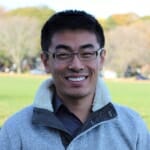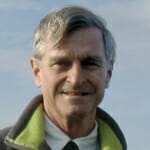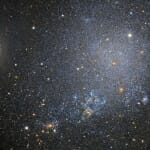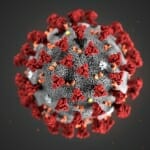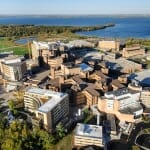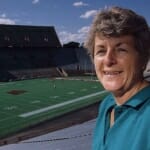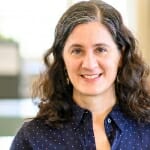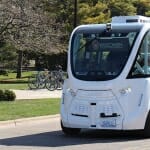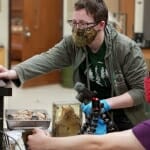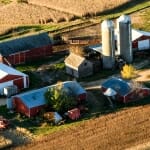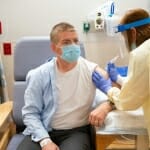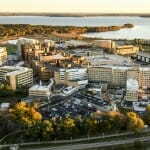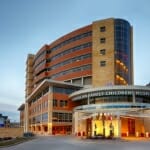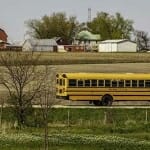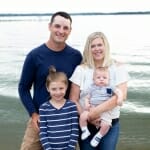Format Link
Luo remembered as kind friend, brilliant scientist, lover of adventure
Graduate student Zhan “Ross” Luo died on Wednesday, Jan. 27, after a brief battle with T cell lymphoma.
Kutzbach’s role in climate science ‘expansive and foundational’
John Kutzbach, an emeritus professor in the Department of Atmospheric and Oceanic Sciences, died Jan. 29. His contributions “helped all of us better understand important aspects of our universe — in particular, those of the Earth’s climate system."
Dark Energy Survey catalogs nearly 700 million astronomical objects
Astronomical researchers around the world can access these unprecedented data and mine them to make new discoveries about the universe.
UW Health encourages patients 65 and older to visit uwhealth.org/vaccine
Following today's announcement from the state Department of Health Services that individuals age 65 and older are eligible to receive the COVID-19 vaccine, here is more information about the process for scheduling appointments.
Pediatric diabetes on the rise during pandemic
Health experts at the American Family Children's Hospital are observing a significant increase in cases of pediatric Type 2 diabetes over the last year compared to 2019.
Sociologist battles inequities in artificial intelligence
Alumna Alex Hanna is a research scientist on Google’s Ethical AI Team, which focuses on responsible artificial intelligence systems. “There’s a very strong chance that those data are exacerbating existing race, gender, and class inequalities,” she says.
Kit Saunders-Nordeen, women’s sports pioneer, dies
Saunders-Nordeen was perhaps the single most important person in the advent of women's intercollegiate sports at UW–Madison, and thousands of women student-athletes benefited from her commitment.
UW-Madison geographer recognized for work to diversify geoscience
Erika Marín-Spiotta has worked to enact meaningful policies against sexual harassment, bullying, and discrimination, and to take meaningful steps to make the geosciences more diverse.
Are U.S. cities ready for autonomous vehicles?
Autonomous vehicles could transform urban planning by, for instance, reducing the need for parking ramps. Yet many cities aren't planning for those changes, research shows.
How to teach anatomy in a pandemic? Graduate TAs create video library
Even students physically in class benefit from the lab livestreams, which show things like 360-degree views of the bones of an alligator skull or a walkthrough of a grad student dissecting a sheep eyeball.
Statewide data shows four-fold increase in recent COVID-19 infections
The antibody study showed that 1.6% of survey participants had evidence of antibodies when tested in July and early August. Between October and December, the number was up to 6.8%.
Farm and Industry Short Course announces tuition guarantee
UW–Madison will guarantee all FISC students from Wisconsin with a family income below the median will have their tuition funded by gifts and grants. “Short Course” has trained future farmers on the latest management and production techniques since 1886.
UW Health designated hub for Pfizer COVID-19 vaccine distribution
As the nation waits for the first shipments of the COVID-19 vaccine from Pfizer, UW Health is preparing to serve as a central storage facility for the region's supply of vaccine.
Wisconsin Institute for Discovery celebrates 10 years
In its first 10 years, WID researchers have made discoveries ranging from artificial blood vessels to a tool for natural resource managers.
A look at vaccine development and distribution
The COVID-19 pandemic has had a terrible impact, but it also has inspired one of the greatest scientific efforts in generations, spurring researchers around the globe to produce multiple potential vaccines in a short time.
Health care workers appeal to people of Wisconsin for help
Hundreds of UW Health workers call on the people of Wisconsin to take precautions against COVID-19 to avoid overwhelming hospitals.
Researchers videotape hundreds of classrooms in 8 countries to study teaching
Essential to the study’s success are observation systems designed by Courtney Bell, a UW–Madison learning sciences professor who directs the School of Education’s Wisconsin Center for Education Research.
First-in-humans clinical trial starts at American Family Children’s Hospital
The trial for children with relapsed or refractory neuroblastoma is being conducted by researchers at University of Wisconsin School of Medicine and Public Health. Neuroblastoma is one of the most common solid tumors in children.
Special education teacher residency program supporting rural schools, UW–Madison students
An innovative program housed within UW–Madison’s School of Education is designed to prepare future special education teachers to work in high-need and small, rural districts in Wisconsin, where they're in demand.
Returning adult students dig deep to balance roles and responsibilities in COVID times
Returning adult students at UW–Madison remain resilient as they keep multiple balls in the air while managing home life, school and work during the pandemic..

